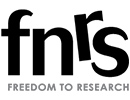On the Importance of Language
12.11.2017Science entertains an awkward relationship with language, since it seems to be an imperfect and often even delusory medium of depicting reality. This is also true for behavioural economics and psychology, as I have pointed out in earlier blog posts: Narratives distort memory, linguistic descriptions create frames that distort the perception of probabilities, and so on. I think that this attitude erects high obstacles against an adequate understanding of human behaviour in the economic context: After all, no economic interaction without communication (and even here, we have the notion of ‘cheap talk’). This attitude is like accusing the builders of the dome of Cologne of a lack of knowledge of Newtonian physics, and therefore denigrating their achievements.
For many philosophers, language is the most important differentia specifica of human beings. Language stays at the core of our capability to engaging in social interaction and cooperation. Therefore, the underlying ontology of language is one of human-centred action, purpose and valuations, as comprehensively shown in Steven Pinker’s best-selling “The Stuff of Thought: Language as a Window into Human Nature”. This means for example, that the underlying notion of causality does not correspond to Newton’s physics. But Newton’s physics does not correspond to relativity theory and quantum mechanics, in turn: Nevertheless, in building a bridge we would safely rely on it. Pinker recognises the deficiencies of language, but also points out that experiments such as the famous Kahneman framing cases often do not pay proper attention to the complexity and implied meanings of words and sentences.
Even in psychological theories about behaviour sometimes language is reduced to its propositional and representative functions, with an emphasis on syntax and syllogism. But language mainly serves other purposes, such as coordinating action in a group to achieve a task, expressing emotional states, or influencing others. All these functions are central to economic action, too. On a more fundamental level, language fulfils the important function of enabling creativity. I think most of behavioural economics overlooks this central role. Take framing: If we emphasize the representational function, frames allegedly distort reality. But what is reality? What is relevant, which aspects needed emphasis, which details may just be treated as marginal? Our capacity to frame our perceptions is essential for enabling us to see things in different lights, and to see something new in them that enables productive actions. The world is constantly changing, and fixed, though truthful depictions of reality may not be the best strategy to cope with uncertainty and surprises. Language is embodied imagination, a human capacity that Adam Smith highlighted in his Theory of Moral Sentiments.
I think that behavioural economics and neuroeconomics should launch a ‘linguistic turn’ and inquire into the role of language in human choice and decisions. That would result in a ‘social neuroeconomics’ that avoids the pitfalls of reductionism. The mechanistic approach pursued in our project easily falls into this trap, because it aims at dissecting causal trajectories in generating action. However, language can also be conceived in this framework, if we aim at integrating bottom-up and top-down mechanisms. Language is a set of highly diverse top-down mechanisms that seem to pervade the entire human brain. For example, logical reasoning involves other brain areas than cursing. There are promising beginnings, such as Dan Ariely’s theory of ‘conceptual consumption’: We do not just eat apples, but also concepts of apples. We must face the complexity of our nature.
Ariely, D. and M. I. Norton (2009), ‘Conceptual Consumption’, Annual Review of Psychology, 60, 475–499.
Pinker, Steven. The stuff of thought: language as a window into human nature. New York: Viking, 2007.







